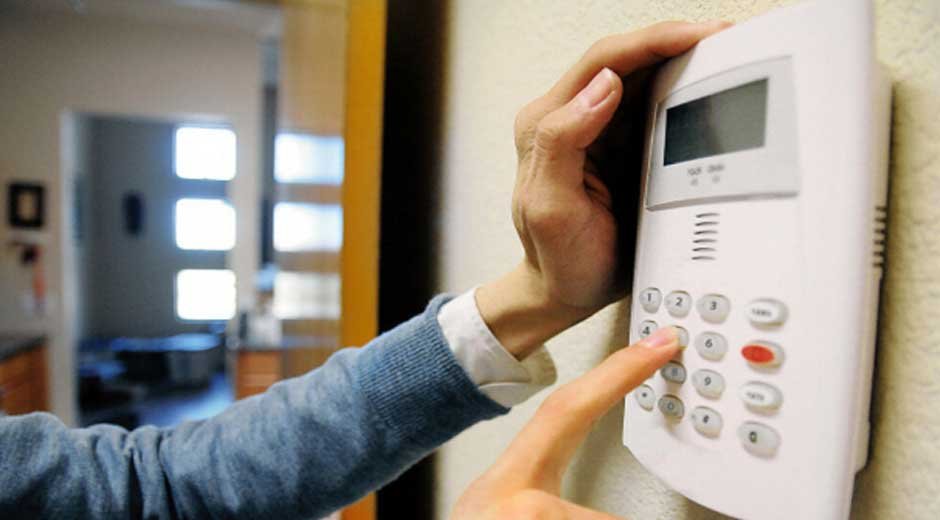Find the best option for your company by paying attention to our new blog and learning more about both corded and wireless professional security systems. A safety mechanism is an essential part of every company. It should come as no surprise that UK workplaces, retail establishments, and managers of properties are constantly searching for the most practical and secure security system. The majority of business owners frequently have to decide between wired or wireless security systems best suit their particular requirements. With some dependable commercial intruder alarm installation solutions, which are intended to offer cutting-edge protection and peace of mind, you can safeguard your company.
Hardwired Intruder Alarms
A hardwired intrusion alarm can be the best option if you want a dependable, long-term solution without having to worry about dead batteries or lost signals. It’s probably a little more dependable than a wireless system as a whole and it will give more peace of mind to the more anxious business owners because most of them have a generator to fall back on in case of a power outage.
Your sensors must be attached to the panel of controls when you experience a connected intruder alarm. There could potentially be a lot of wires running throughout your structure, depending on how distant your sensors are located from the panel.
Wireless Alarms For Intruders
Similar to their hardwired counterparts, wireless intruder alarms identify an intruder and communicate that information by activating an alarm and/or notifying personnel at an alarm reception centre (ARC). Instead of using cables, they use a WiFi signal to transmit the data instead of an electrical current.
A wireless intruder alarm’s primary and most visible feature is that it doesn’t require any wires. By itself, that fundamental reality offers several advantages. First of all, it eliminates the inconvenience and cost associated with installing a connected system, making the installation process far faster and less expensive.
Cost Of Installation
Even though the parts can cost more, installing a wireless intruder protection system takes a lot less time than installing a wired one—typically half as long. Because of this, a wireless intruder alarm system would often be less expensive than a fully wired one.
However, the cost of personnel and cabling may go down for companies with cable compartments or ceilings that are suspended or for new construction in homes, which might make wired intrusion systems more appealing. A wired intruder alarm system may cause some disruption during initial installation, but once the wires are installed, they won’t be removed.
Upkeep
One minor drawback of wireless security measures is that, depending on usage, all of the devices’ batteries must be changed every two to five years. But in a networked system, the external loudspeaker battery and the backup power source in the primary panel of control will need to be changed roughly every five years. Maintenance will reduce continuing costs and postpone the need to replace equipment, regardless of the system you select.
Dependability
Although physical connections and the absence of any signal interference have historically made wired security systems more dependable, contemporary wireless systems have significantly improved and are now on a level with wired systems in terms of dependability.
Given this, there is no longer any discernible distinction between the two commercial alarm systems.
Dependability
Two separate power sources—primary and backup—are necessary for all fire alarm systems.
A wired alarm has a direct connection to the building’s electrical system as its main source. Your wired detector should continue to function well as long as there is consistent maintenance, a steady network, and dependable power. In the case of a power loss, it will continue to function thanks to a secondary battery.
Beauty And Disruption
For the wirelessly operated system, this is a definite winner. A much neater installation results from eliminating wiring. There is no incentive to start putting holes in walls hiding unsightly cables in unsightly plastic trucking or installing them around doorways. Additionally, it implies less inconvenience for you as the customer because we can deploy wireless systems in less than a day.
System Adaptability
Wireless alarm system extensions are easy to implement. Installing the new detector and programming it into the computerized system is all that is required. Due to the inevitable emergence of wiring problems, electrically powered systems are more complicated, disruptive, and time-consuming.
Final Words
The truth is that when properly configured, both more recent wireless alarm systems and more conventional wired alarms work dependably and effectively to protect your house or place of business. A wireless intruder protection system can be the greatest choice for residences and small business facilities without preexisting wiring. A wired intruder deterrent system is the better choice for bigger constructions or buildings with several access points.

